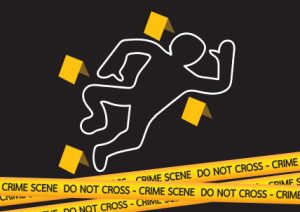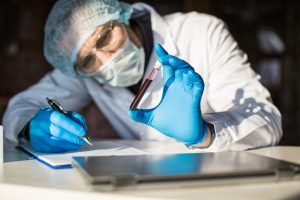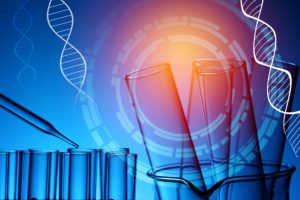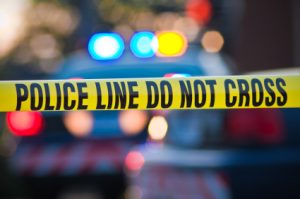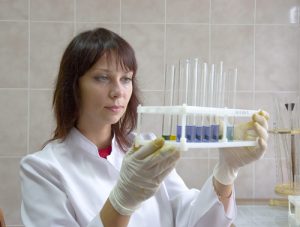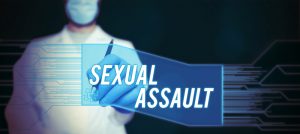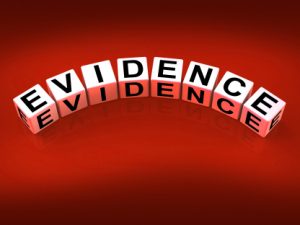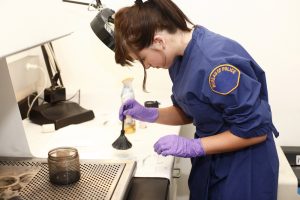Forensic nursing certification plays a crucial role in homicide investigations, bridging the gap between healthcare and criminal justice. This specialized field equips nurses with the skills to analyze crime scenes, conduct forensic examinations, and collaborate with law enforcement agencies. As the demand for skilled professionals in this area grows, forensic nursing certification programs online have become increasingly popular.

Forensic nurses who specialize in death investigation contribute significantly to solving complex cases. They apply their medical knowledge to criminal investigations, working alongside medical examiners and forensic science teams. This article explores the key skills required for homicide investigations, including forensic nurse duties, the role of SANEs (Sexual Assault Nurse Examiners), and the importance of certification from organizations like the American Board of Medicolegal Death Investigators. It also delves into technological advancements shaping the field of forensic nursing.
The Role of Forensic Nurses in Homicide Cases
Forensic nurses play a crucial role in homicide investigations, applying their medical knowledge to criminal cases. These specialized professionals bridge the gap between healthcare and the criminal justice system, providing invaluable support to law enforcement agencies and medical examiners. Their expertise in forensic nursing certification equips them with the skills necessary to analyze crime scenes, conduct forensic examinations, and contribute significantly to solving complex cases.
First responder duties
As first responders, forensic nurses are often among the initial professionals to interact with victims of violent crimes. Their primary responsibility is to provide immediate medical care while preserving potential evidence. These nurses possess a keen eye for detail and understand the legal implications of their actions. They are trained to observe and document injuries meticulously, ensuring that their methods are reproducible and can withstand legal scrutiny.
In homicide cases, forensic nurses may assist medical examiners in determining the cause and manner of death. They may participate in autopsies, helping to examine the body of the deceased and collect samples that can aid in the investigation. Their expertise is particularly useful in noting injuries or abnormalities that can be helpful during death investigations related to homicide, foul play, or sudden and unexplained deaths.
Evidence documentation
One of the most critical aspects of a forensic nurse’s role in homicide cases is evidence documentation. These professionals are trained to collect, preserve, and document evidence that could be crucial in court proceedings. This may include taking photographs of injuries, collecting clothing, and performing forensic examinations.
Forensic nurses must maintain a strict chain of custody for the evidence they collect. They understand the importance of preserving the integrity of evidence, as it can make or break a case in court. Their meticulous approach to evidence documentation ensures that all relevant information is captured and can be used effectively in criminal investigations.
Victim advocacy
While forensic nurses focus on collecting and preserving evidence, they also play a vital role in victim advocacy. They provide compassionate care to the families of homicide victims, offering emotional support during a traumatic time. These nurses are trained to handle sensitive situations and balance their empathetic care with the objective collection of evidence.
Forensic nurses often collaborate with victim advocates to ensure comprehensive support for the families affected by homicide. They may help connect families with appropriate resources, such as counseling services or support groups. By providing this holistic care, forensic nurses contribute to the healing process for those impacted by violent crimes.
The role of forensic nurses in homicide cases demands a unique combination of medical expertise, investigative skills, and emotional resilience. Their contributions to criminal investigations are invaluable, providing crucial medical evidence and testimony that can significantly impact the outcome of a case. As the field of forensic nursing continues to evolve, these professionals remain at the forefront of bridging healthcare and criminal justice, ensuring that victims receive the care they need and that justice is served.
Essential Skills for Crime Scene Analysis
Forensic nurses with certification in crime scene analysis possess a unique set of skills that are crucial for homicide investigations. These professionals bridge the gap between healthcare and criminal justice, applying their medical knowledge to interpret crime scene evidence accurately. Their expertise in forensic examinations and evidence collection plays a vital role in solving complex cases.
Bloodstain pattern interpretation
One of the essential skills for forensic nurses is the ability to interpret bloodstain patterns. This skill involves analyzing the size, shape, distribution, and location of bloodstains to reconstruct the events that led to bloodshed. Forensic nurses use principles of biology, physics, and mathematics to answer critical questions about the crime scene.
Bloodstain pattern analysis helps determine the origin of blood, the cause of wounds, and the direction from which the victim was injured. It also provides insights into the positioning of victims and perpetrators, as well as any movements made after the bloodshed occurred. This information is invaluable for corroborating witness statements and including or excluding potential suspects.
Forensic nurses must be adept at recognizing different types of bloodstains, including passive stains, transfer stains, and projected or impact stains. They should also understand how factors such as surface texture and the force used to propel the blood affect the resulting patterns. This knowledge allows them to make accurate assessments of the crime scene and contribute significantly to the investigation.
Trace evidence collection
Another critical skill for forensic nurses is the ability to collect and preserve trace evidence. This evidence may consist of small particles such as fibers, hair, glass fragments, or gunshot residue. Proper collection and handling of trace evidence are essential for maintaining its integrity and ensuring its admissibility in court.
Forensic nurses must be meticulous in their approach to trace evidence collection. They should wear gloves at all times and change them frequently to avoid cross-contamination. When collecting evidence, they must follow a strict protocol that includes documenting and photographing the evidence, securing it in appropriate containers, and maintaining a clear chain of custody.
The collection of biological evidence, such as skin cells, saliva, or semen, requires special attention. Forensic nurses must be skilled in using swabs and other collection tools to gather these samples without compromising their quality. They should also be knowledgeable about the proper storage and preservation methods for different types of evidence to prevent degradation.
Photography and sketching
Accurate documentation of the crime scene through photography and sketching is a crucial skill for forensic nurses. High-quality photographs serve as a permanent record of the scene and can be used for further analysis by experts. Forensic nurses must be proficient in using digital cameras and understanding the principles of forensic photography.
When photographing bloodstain patterns, forensic nurses should capture overall, mid-range, and close-up shots. They must use proper lighting techniques and include scales in their photographs to provide accurate measurements. Video recordings and sketches of the scene can provide additional perspective and documentation.
Sketching the crime scene is equally important, as it allows forensic nurses to document the spatial relationships between evidence and objects in the scene. These sketches can be used to supplement photographs and provide a comprehensive view of the crime scene layout.
Medical Knowledge for Homicide Investigations
Forensic nursing certification equips professionals with essential medical knowledge crucial for homicide investigations. This expertise allows them to contribute significantly to determining the cause of death, estimating the time of death, and analyzing injury mechanisms.
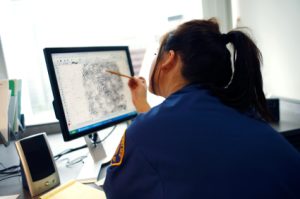
Cause of death determination
Determining the cause of death is a critical component of any homicide investigation. Forensic nurses with specialized training can assist medical examiners in this process. They apply their medical knowledge to analyze physical evidence, interpret autopsy findings, and consider various factors that may have contributed to the victim’s demise.
In homicide cases, forensic nurses may encounter a range of causes of death, including gunshot wounds, stab wounds, blunt force trauma, or asphyxiation. Their expertise in wound analysis and injury patterns helps them identify the specific mechanisms that led to the victim’s death. This information is vital for investigators and can provide crucial insights into the circumstances surrounding the homicide.
Forensic nurses also play a role in distinguishing between natural deaths and those resulting from criminal acts. Their medical background allows them to recognize signs of foul play that might otherwise go unnoticed. This ability is particularly valuable in cases where the cause of death is not immediately apparent or when there are attempts to conceal the true nature of the death.
Time of death estimation
Estimating the time of death is another critical aspect of homicide investigations where forensic nursing certification proves invaluable. Forensic nurses use their knowledge of postmortem changes to provide investigators with a timeline of events.
One key method used in time of death estimation is the assessment of algor mortis, which refers to the cooling of the body after death. Forensic nurses understand that the body generally cools at a rate of one to one and a half degrees per hour following the first hour after death. However, they also consider factors that can affect this rate, such as ambient temperature, body composition, and clothing.
In addition to algor mortis, forensic nurses evaluate other postmortem indicators like rigor mortis (muscle stiffening) and livor mortis (settling of blood). These changes occur in predictable patterns, allowing trained professionals to estimate the postmortem interval more accurately.
Injury mechanism analysis
Forensic nurses with advanced certification possess the skills to analyze injury mechanisms in homicide cases. This expertise is crucial for understanding how injuries were inflicted and can provide valuable insights into the circumstances of the crime.
In gunshot wound cases, for example, forensic nurses can assess the entry and exit wounds, bullet trajectory, and associated tissue damage. This analysis helps determine the type of firearm used, the distance from which it was fired, and the position of the victim at the time of the shooting.
For cases involving blunt force trauma or sharp force injuries, forensic nurses examine wound patterns, depth, and characteristics to determine the type of weapon used and the force applied. This information can be critical in reconstructing the events leading to the homicide and identifying potential suspects.
Forensic nursing certification programs online often include specialized training in injury mechanism analysis, ensuring that these professionals are well-equipped to contribute to complex homicide investigations. Their ability to interpret medical evidence and communicate findings effectively makes them invaluable assets to investigative teams and the criminal justice system as a whole.
Forensic Nursing Certification Program
Forensic nursing certification programs play a crucial role in equipping nurses with the specialized skills needed for homicide investigations. These programs offer comprehensive training and credentials that validate a nurse’s expertise in the field of forensic science and criminal investigations.

AIHCP offers a certification for nurses in Forensic Nursing. The program leads to a four year certification after completion of five online courses in the field of Forensic Nursing. The program is self paced and independent study with mentorship as needed. Please review the program and see if it meets your academic and professional goals.
Collaboration with Law Enforcement
Effective collaboration between forensic nurses and law enforcement is crucial in addressing cases involving physical or sexual assault, abuse, and other instances where health and legal issues intersect. This partnership requires clear communication and a shared understanding of each other’s roles and responsibilities. Forensic nursing certification programs prepare nurses to work closely with police officers, detectives, and attorneys to develop cases and provide expert testimony when needed.
Communication strategies
Forensic nurses serve as a vital link between medical care and law enforcement, offering valuable insights that can strengthen investigations and legal proceedings. Their ability to communicate medical findings clearly and concisely to non-medical professionals, such as juries and judges, can be a deciding factor in the success of prosecutions. Effective communication between forensic nurses and law enforcement officers is essential for successful collaboration.
This includes regular briefings on the status of medical examinations and findings, as well as discussions about the progress of the legal investigation. Both parties must maintain a clear and consistent chain of communication to protect the integrity of the evidence and the well-being of the victim. Forensic nurses learn to balance patient care with the needs of criminal investigations, ensuring that their unique role as caregivers and forensic specialists contributes significantly to both victim recovery and the pursuit of justice.
Joint training exercises
To enhance collaboration, forensic nursing certification programs often include joint training exercises with law enforcement agencies. These exercises help both parties understand each other’s roles and responsibilities in the investigative process. Forensic nurses learn about the legal aspects of evidence collection and preservation, while law enforcement officers gain insights into the medical aspects of forensic examinations.
These joint training sessions may cover topics such as proper evidence collection techniques, maintaining the chain of custody, and understanding the significance of various types of physical evidence in criminal cases. By participating in these exercises, forensic nurses and law enforcement officers develop a shared language and approach to handling sensitive cases, ultimately leading to more effective investigations and better outcomes for victims.
Case review processes
Case review processes play a crucial role in the collaboration between forensic nurses and law enforcement. Regular case reviews allow both parties to assess the effectiveness of their joint efforts and identify areas for improvement. These reviews often involve multidisciplinary teams, including forensic nurses, law enforcement officers, prosecutors, and other relevant professionals.
During case reviews, forensic nurses may present their findings and explain the medical significance of evidence collected during examinations. Law enforcement officers can provide updates on the progress of investigations and discuss how the medical evidence has contributed to the case. This collaborative approach ensures that all aspects of a case are thoroughly examined and that the expertise of both medical and law enforcement professionals is fully utilized.
By participating in case review processes, forensic nurses and law enforcement officers can refine their collaborative strategies, address any challenges that arise, and continuously improve their joint efforts in addressing cases of violence and abuse. This ongoing collaboration strengthens the overall response to these crimes and helps ensure that victims receive comprehensive care while justice is pursued.
Technological Advancements in Forensic Nursing
The field of forensic nursing has experienced significant advancements in recent years, with technology playing a crucial role in enhancing the effectiveness of criminal investigations. These innovations have revolutionized the way forensic nurses collect evidence, analyze crime scenes, and contribute to solving complex cases.
Digital evidence collection
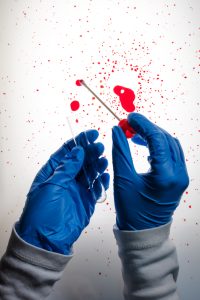
Forensic nursing certification programs now include training on digital evidence collection techniques. With the widespread use of electronic devices, investigators can extract and analyze data from smartphones, computers, and other digital sources. This information provides valuable insights into the activities and communications of suspects, helping to establish timelines and motives in homicide cases.
Text messages, emails, and social media posts can reveal important details about a suspect’s whereabouts, relationships, and intentions. Additionally, GPS data from mobile devices can track a suspect’s movements, offering crucial evidence in reconstructing the events leading up to a crime. The ability to collect and interpret digital evidence has become an essential skill for forensic nurses involved in criminal investigations.
3D crime scene reconstruction
Three-dimensional imaging techniques have transformed crime scene analysis, allowing for non-invasive and non-destructive documentation of individuals and crime scenes. These advanced tools capture detailed external and internal features of bodies and evidence, creating high-resolution and precise 3D models.
Forensic nurses can now utilize 3D surface scanning and photogrammetry to document skin injuries with exceptional accuracy. These techniques effectively capture abrasions, bruises, imprint marks, teeth marks, lacerations, and superficial cuts, which may be challenging to detect using traditional methods.
By incorporating 3D models of victims, perpetrators, and the crime scene into a single virtual environment, forensic nurses can contribute to more comprehensive and intuitive visualizations. This approach proves invaluable during investigation phases for hypothesis testing and in court procedures for presenting evidence in a clear and understandable manner.
DNA analysis techniques
DNA analysis has become a cornerstone of forensic nursing, with recent advancements significantly enhancing its role in homicide investigations. Modern DNA kits used in state crime laboratories are more sensitive and capable of detecting smaller amounts of DNA from evidentiary samples.
Forensic nurses now have the ability to collect touch DNA, which refers to the genetic material left behind when a person touches an object or surface. This has proven particularly useful in cases where traditional DNA evidence may be limited. The collection of touch DNA swabs has become a valuable tool in various scenarios, including stranger groping sexual assault cases and instances where an assailant’s DNA is not expected to be found on the victim’s clothes or body.
The accuracy and reliability of DNA analysis have improved dramatically, with current techniques boasting a precision rate of around 99%. This level of accuracy has made DNA evidence a powerful tool in both convicting the guilty and exonerating the innocent. Forensic nursing certification programs now emphasize the importance of proper DNA collection techniques and the interpretation of DNA analysis results in criminal investigations.
Conclusion
Forensic nursing certification has a profound impact on homicide investigations, bridging the gap between healthcare and criminal justice. The skills acquired through these programs enable nurses to analyze crime scenes, conduct thorough examinations, and work hand in hand with law enforcement agencies. As technology continues to evolve, forensic nurses are at the forefront of using cutting-edge tools to collect digital evidence, reconstruct crime scenes in 3D, and perform advanced DNA analysis. These advancements have significantly improved the accuracy and efficiency of criminal investigations.
The collaborative efforts between forensic nurses and law enforcement agencies are crucial to solving complex cases and securing justice for victims. Joint training exercises and regular case reviews help to strengthen this partnership, ensuring that both medical and legal aspects of investigations are handled with expertise. As the field of forensic nursing continues to grow, it’s clear that these skilled professionals play an essential role in the criminal justice system, contributing their unique blend of medical knowledge and investigative skills to unravel the mysteries surrounding homicide cases.
Please also review AIHCP’s Forensic Nursing Certification and see if it meets your academic and professional goals.
FAQs
What are the responsibilities of a forensic nurse death investigator?
A forensic nurse death investigator (NDI) is responsible for pronouncing and confirming deaths, identifying the deceased, and notifying their next of kin. Their duties also include collecting the medical and social histories of the deceased, examining the body, and investigating the scene where the death occurred.
What educational background is required to become a forensic nurse?
To pursue a career in forensic nursing, one typically needs to obtain a Bachelor of Science in Nursing (BSN) from an accredited institution, which is a four-year program. Alternatively, an Associate Degree in Nursing (ADN) can be obtained, though some employers might prefer candidates with a bachelor’s degree.
Is it possible for a nurse to work as a crime scene investigator?
Yes, forensic nurse investigators collaborate closely with law enforcement to collect evidence in situations involving sexual assault and domestic violence. Additionally, advanced forensic nurses can serve as expert witnesses during legal proceedings.
What is the potential earnings range for a forensic nurse?
Forensic nurses typically earn between USD 48,000 and USD 80,499 annually. Those at the top of the pay scale can earn up to USD 107,500 per year.
Additional Resources
“The Forensic Nurse as a Death Investigator”. International Association of Forensic Nurses. Access here
“The Role of Forensic Nurses in Criminal Investigations” Critical Analysis RN. Access here
Drake. S. et al. (2020). “Nurses and Medicolegal Death Investigation” J Forensic Nurse. 2020 Oct/Dec;16(4):207-214. doi: 10.1097/JFN.0000000000000310. Access here
“Forensic Nursing Jobs Explained Through Famous Forensic Cases”. (2024). Cleveland State University. Access here

